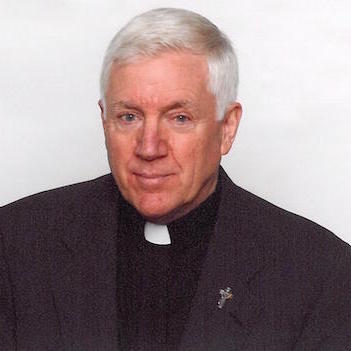The bromide of “being true to yourself” has found new life in gender studies, in the vertiginous celebration of the Supercilious Self, and in the concomitant denial of the “permanent things.” For example, Mount Holyoke College, in Massachusetts, proudly announces that “it welcomes applications for its undergraduate program from any qualified student who is female or identifies as a woman.” A female is one who is
- Biologically born female; identifies as a woman
- Biologically born female; identifies as a man
- Biologically born female; identifies as other/they/ze
- Biologically born female; does not identify as either woman or man
- Biologically born male; identifies as woman
- Biologically born male; identifies as other/they/ze and when ‘other/they’ identity includes woman
- Biologically born with both male and female anatomy (Intersex); identifies as a woman.
Of course, certain standards must be maintained; therefore, anyone in the “biologically born male; identifies as man” category cannot apply for admission consideration. Fortunately, however, those born male who identify as female are welcome to apply.
One imagines that the myrmidons of progress at Mount Holyoke take satisfaction in thus having removed outdated and prejudiced impediments to autonomy, to free and unfettered sexual and self-expression, to the elimination of the antediluvian notion that “God created them male and female” (Gen. 1:27).
Orthodox. Faithful. Free.
Sign up to get Crisis articles delivered to your inbox daily
Gender studies are burgeoning. The rainbow thread connecting all the LGBT fields is the study of power and, even beyond that, “freedom.” LGBT theorists may never have heard of the American political scientist Harold Lasswell (1902-1978), but it was he—er, ze—who asked the seminal question by way of defining politics: who gets what, when, how? Lenin, by the way, had asked the same question, although more concisely: kto/kovo (Who, Whom?). Who dominates whom in society?
LGBT theorists are, in fact, entirely traditional in seeking answers to what is the first question of empirical politics: Who has preeminent power?
Compare all this, though, with the remark made by the late Russell Kirk (1918-1994): Politics is “the application of ethics to the concerns of the commonwealth.” From Aristotle to Machiavelli, politics pursued reconciliation between What Is and What Ought to Be. Machiavelli replaced virtue (concern for ethics) with virtu (concern for power), denying the intimate connection between right and might, subverting the former with the latter.
Now come fields and theories which, at their heart, are Machiavellian, for their concern lies with power, and they resolutely renounce traditional (read: Judeo-Christian) ethics as the property of cranks, scolds, and, of course, believers. Everyone has the right to define himself (if you will pardon the old-fashioned use of that indefinite pronoun). In constructing our gender, our lives, our purpose for being, we owe nothing to anyone, save the selves we fashion according to our own urges and appetites.
The new wave of Gender Theory, though, is not principally about power. It is, rather, chiefly about self-apotheosis; it is about our becoming our own gods. As we read through the catalogue of gender permutations, we may reasonably be reminded of the teaching about the Tower of Babel (Gen. 11).
Those building the new Tower insist that they have license to be anyone or anything they wish to be. They have license to worship anyone or anything they wish to worship. They have license to say, as did Milton’s Satan, “Evil, be thou my good!”
The reply: Do not think yourselves free, for freedom is not license. “There is no true freedom except in the service of what is good and just” (CCC #1733). If your god is your appetites and your urges, and you lampoon the holy as if it were merely a vestige of medieval power structures, you will find only one god—only one reflection of the gender which you finally settle upon, and it will be the false god of the mirror.
License to be anyone you choose is fraudulent freedom. It is the ultimate celebration of Me-ism, the autistic proclamation of Anthony Kennedy that “at the heart of liberty is the right to define one’s own concept of existence, of meaning, of the universe, and of the mystery of human life”; it is the solipsistic conceit that only “I” define reality and biology.
Establish political and ethical order on this kind of subjectivism on steroids, and you condemn yourself to the condign fate of Narcissus.
Genuine freedom always means rejection of and release from the bonds of sin. Real emancipation always means an end to the darkness of what is evil and a beginning to the light of what is good. Authentic liberty always means conformity—not to the fictions, fads, and fashions of the day—but to the Truth of divine order (cf. Rom. 12:2).
The Catechism tells us that “the necessary precondition for the development of true freedom is to let oneself be educated in the moral law” (2526). The self-exaltation of the day, however, insists that we are a law to ourselves. The ranting of Polonius—“to thine own self be true”—has found its antinomian way into college admissions announcements, and well beyond.
We must not conflate the corrupt ideology of the day with the permanent things (to use another phrase of Russell Kirk’s). “Do not let all kinds of strange teachings lead you from the right,” we read in Hebrews (13:9; Eph. 4:14-15). But there, precisely, is the rub. Rarely do we read Hebrews or Veritatis Splendor; rarely do we see such conviction championed at and by our Catholic colleges; rarely (if ever) do we hear such foundational understanding at the heart of our weak-kneed Catholic politicians, pundits, and professors. They are, it seems, much too busy being true to themselves. They do not know who they are; neither do they know whose (1 Cor. 7:19, Rom. 14:8) they are.
